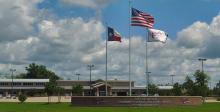Digging IT in Dayton, Texas
DayNet, a new Internet utility emerging in Dayton, Texas, is looking to lasso a broadband-minded boss for this small East Texas city of approximately 7,200, about 37 miles east of Houston.
Applications are being accepted for a Broadband Manager/Head Network Engineer to oversee the business and technical operations of DayNet as the city has begun construction of a citywide Fiber-to-the-Home (FTTH) network.
In addition to hiring a Broadband Manager/Head Network engineer, the city is banking on the project to “increase competition and choice . . . while having a positive impact on economic development, education, and the technology amenities that are available to citizens and businesses.”
Good Credit, Better Broadband
To finance the construction, the Dayton City Council approved a $13.7 million bond issuance at a 2.56% interest rate, thanks to the city’s rising credit rating. Network construction began at the start of the year. And when the network is fully built, which is expected to be complete by 2023, 110 miles of fiber will criss-cross the city’s 11 square miles, passing every home, business, and anchor institution in Dayton.




